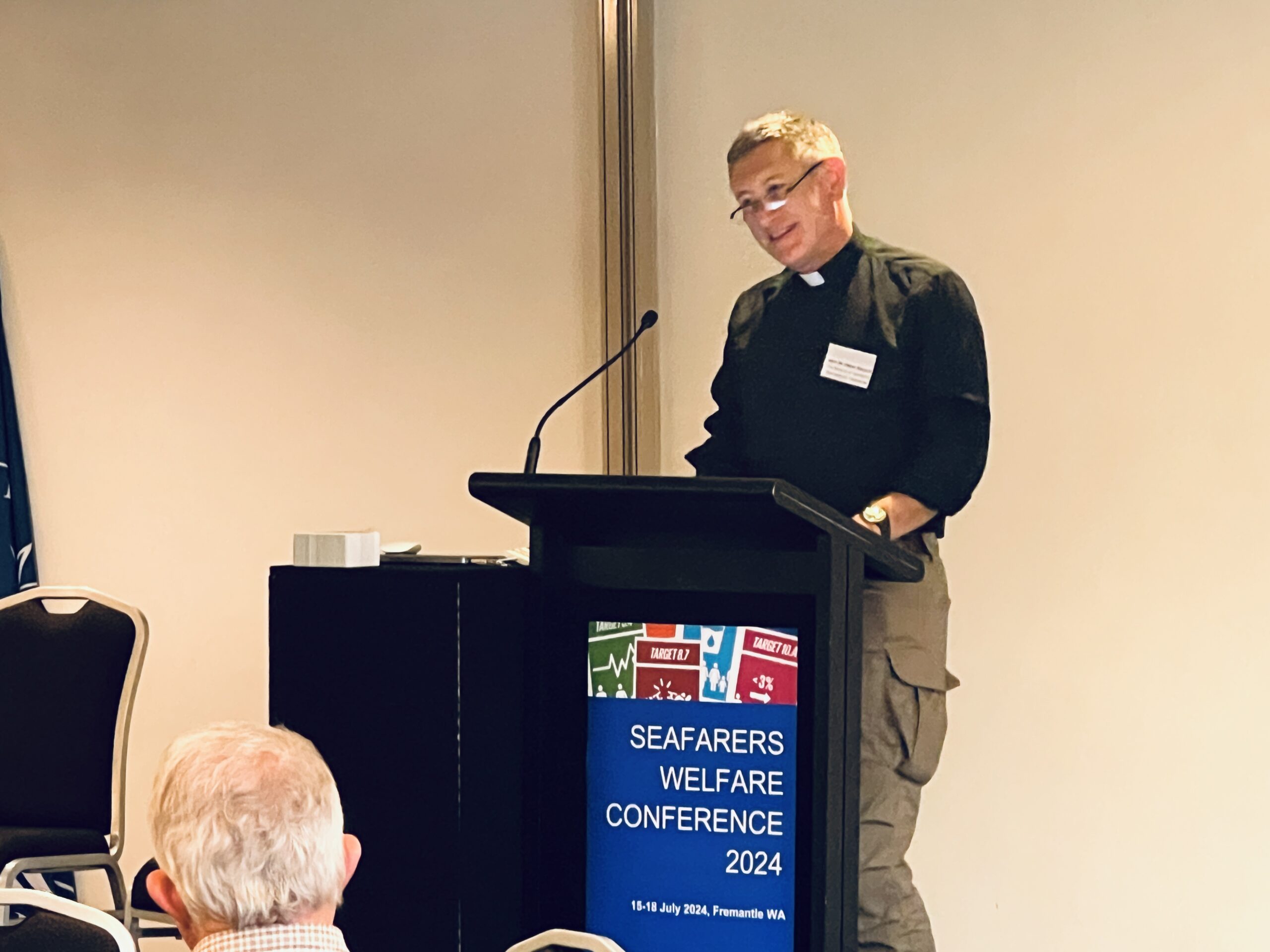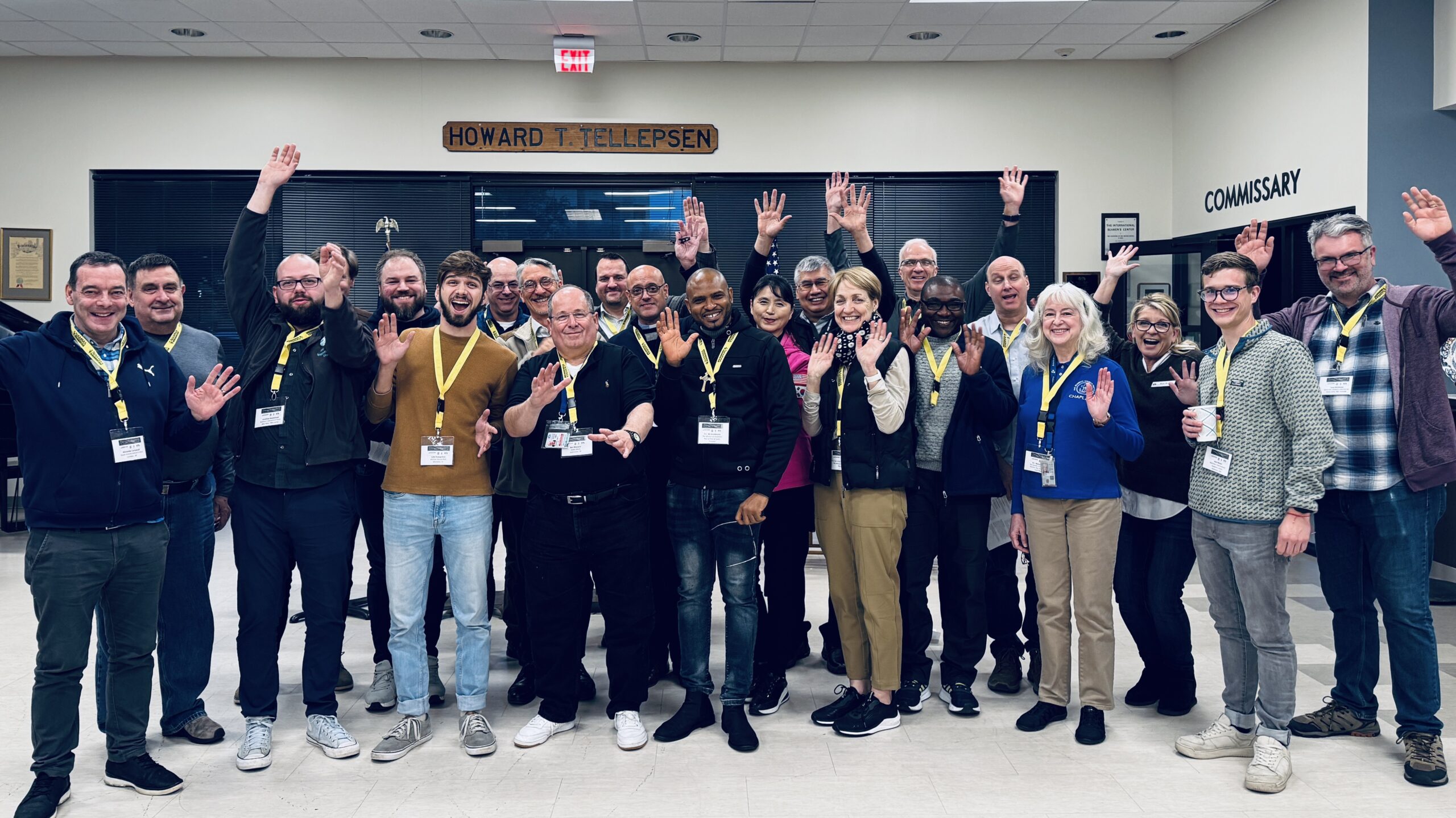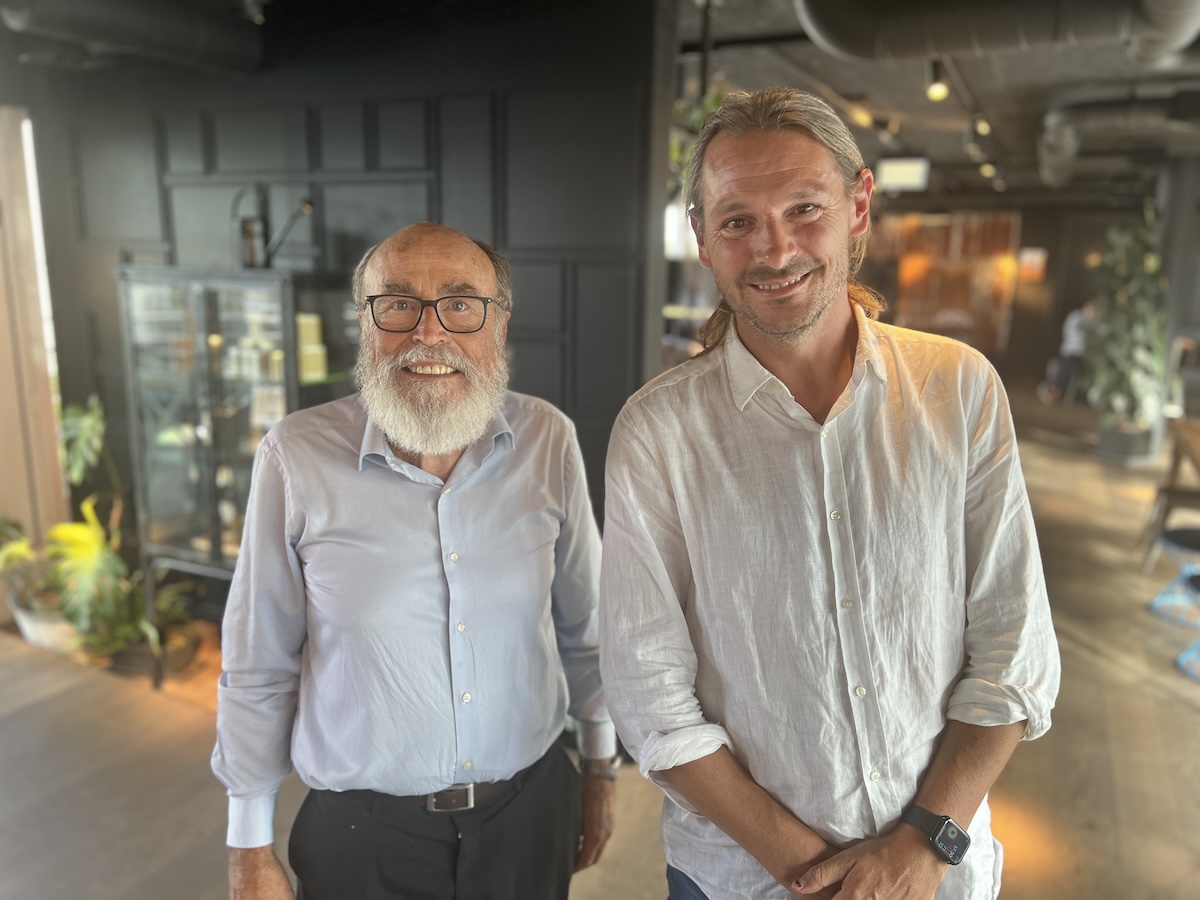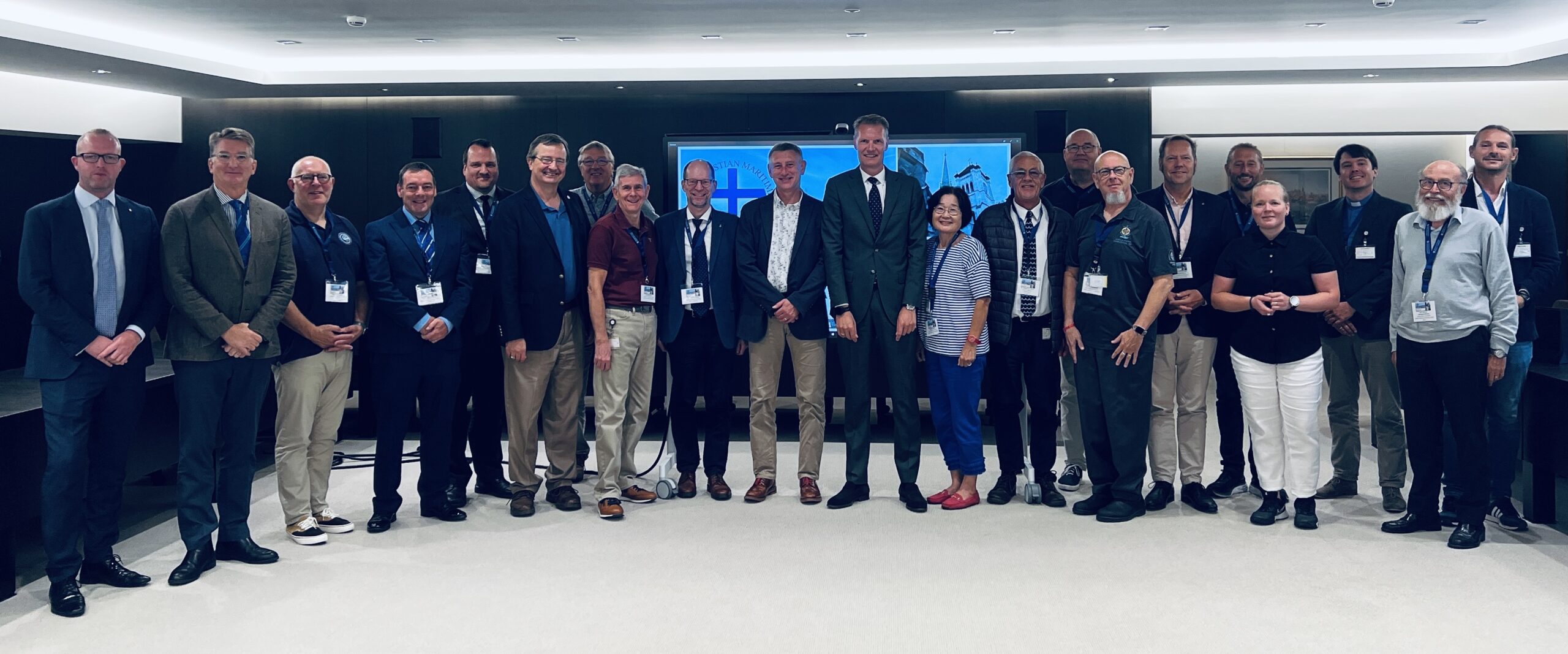The Ven. Dr. Peter Rouch, newly appointed as the Secretary General of The Mission to Seafarers, has begun his tenure with an invigorating start. Within just a few weeks, he has already visited New Zealand and Australia, immersing himself in the communities of the Mission to Seafarers and understanding their unique challenges and opportunities. On July 17, 2024, he delivered a keynote speech at the Seafarers’ Welfare Conference in Fremantle, Australia, organized by the Mission to Seafarers Australia.
In his address, Dr. Rouch expressed a blend of enthusiasm and humility. “It will take me some time to get my head around what I have walked in on,” he admitted, underscoring the complexity and depth of the mission ahead. His visits to New Zealand and Australia have been particularly instructive, providing him with initial insights into the seafaring world. He emphasized that the process of understanding and engaging with the mission is just beginning and will be intense and extended in the coming months as he meets and learns from various stakeholders.
Dr. Rouch chose not to unveil a new grand vision, stating, “I’m not going to use my time for a whizzy new vision… thankfully, I don’t have one.” Instead, he shared his early observations and questions, which, while not fully formed, reflect his current thinking and areas of curiosity. He outlined five key observations that he believes are critical for the Mission to Seafarers at this juncture.
Firstly, Dr. Rouch highlighted the impact of technological change on the seafaring sector. Despite advancements suggesting a reduced need for human involvement, he argued that the Mission to Seafarers’ role is more crucial than ever. As technology and automation increase, the number of human operators is projected to decrease, leading to fewer seafarers and greater isolation. This trend could heighten stress levels among seafarers, making the Mission’s support systems indispensable. Dr. Rouch stressed that while technology might superficially suggest a reduced need for the Mission’s services, it actually underscores their importance even more.
Secondly, Dr. Rouch pointed to the global shift in trade towards the East. Historically, commercial activity was centered between Europe and America, but this axis continues to shift eastwards. This change raises significant questions about what it means for the Mission to be more global. How should the Mission adapt to this new reality and ensure it remains relevant and effective in this evolving global landscape? These are critical questions that Dr. Rouch is keen to explore and address.
Thirdly, the importance of information sharing and visibility was a key point in Dr. Rouch’s speech. He emphasized that data and transparency are crucial in today’s world. Tools like the ShipVisitor app, which is now managed by the MTS play a vital role in enhancing understanding and collaboration within the seafaring community. In a sector where profits are often hidden and liabilities localized, the most invisible and vulnerable participants are the seafarers themselves. Dr. Rouch highlighted the importance of sharing information not only for internal clarity but also for effective communication with partners. By leveraging tools like ShipVisitor, local voices can be amplified on a global scale, creating a more connected and informed network.
Listening to seafarers themselves was another critical area of focus for Dr. Rouch. He acknowledged that discussions are often dominated by land-based perspectives, which can overlook the unique experiences of those at sea. Dr. Rouch reflected on his own realization in the past weeks of being firmly rooted in the British Isles and the importance of understanding seafarers’ sea-based perspectives. He posed a vital question: how can we listen more deeply and fully to seafarers who are often away at sea? This deep and full listening is essential to truly understanding and addressing their needs. Issues faced by seafarers are often different from those on land, necessitating a closer alignment with their experiences.
Finally, Dr. Rouch concluded with an uplifting message about the importance of love and care for seafarers. He shared a touching anecdote about his conversation with a ship visitor the previous evening at dinner, who spoke passionately about welcoming seafarers with love. Dr. Rouch emphasized that when seafarers feel loved, it transcends immediate impact and resonates eternally. This attitude of love is not just important; it is eternal. He reminded the audience of the enduring nature of faith, hope, and love, with love being the greatest. Dr. Rouch’s message was clear: seafarers are not cases to be solved but people to be loved. This fundamental principle should guide the Mission’s work moving forward.
Dr. Peter Rouch’s speech set a hopeful and compassionate tone for his tenure, encouraging all involved to stay committed to their core values and continue their invaluable work. “God bless you all and thank you!” he concluded, leaving the audience with a sense of purpose and inspiration.





